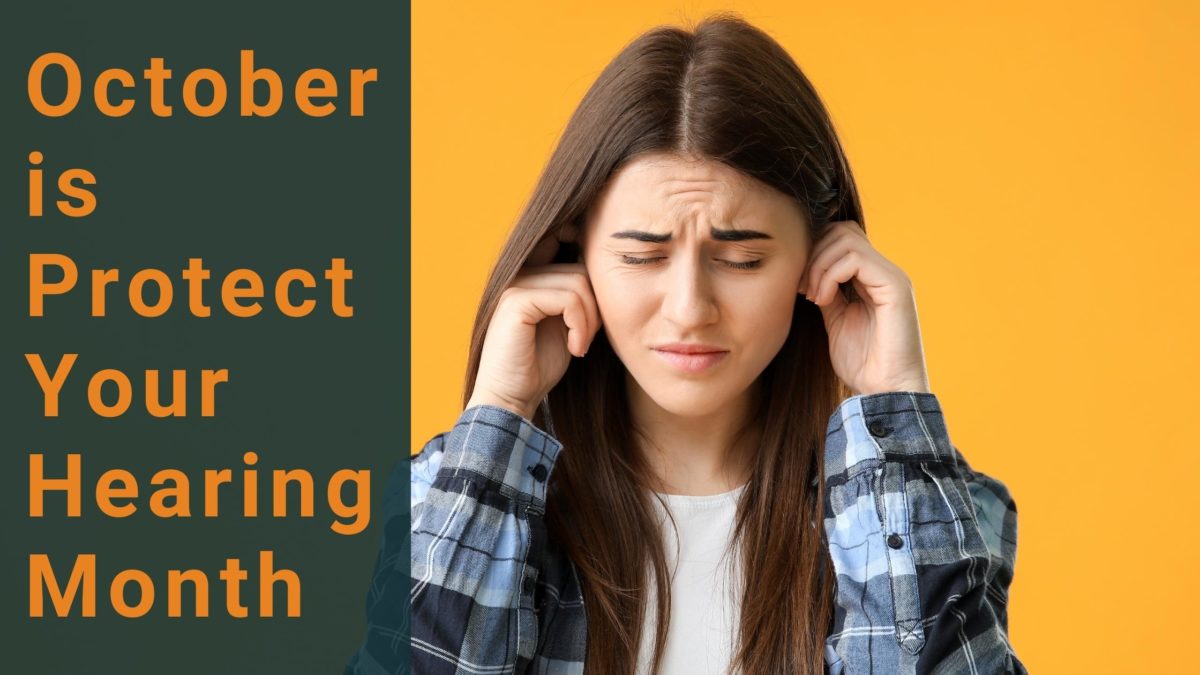- New Study Shows that 1 in 10 Adults in the US Suffer from Tinnitus - October 31, 2021
- Prevent Falls by Treating Hearing Loss - October 21, 2021
- October is Protect Your Hearing Month - October 16, 2021
The National Institute on Deafness and Other Communication Disorders (NIDCD) has announced the start of National Protect Your Hearing Month, an annual campaign to raise awareness about the causes and prevention of noise-induced hearing loss in October (NIHL).
What is Noise-induced hearing loss (NIHL)?
When tiny hair cells in the cochlea—the little, snail-shaped organ in the inner ear that controls hearing—are injured or destroyed by recurrent noise or single exposure to loud noise, NIHL occurs. When hair cells are destroyed, they are unable to deliver sound information to the brain. Because NIHL is usually gradual, you might not notice losing your hearing until it’s too late. Hearing loss from noise is permanent since people can’t develop new hair cells to replace the ones that have been damaged.
According to a 2017 study by experts from the NIDCD and the Centers for Disease Control and Prevention, about 24% of US individuals aged 20 to 69 have aspects of their hearing tests in one or both ears that imply hearing loss from loud noise (CDC).
However, the problem may be worsening among the younger cohort of that study.
Hearing loss is on the rise among younger populations
Due to the rising use of headphones and loud music events, the World Health Organization warned in 2015 that 1.1 billion teenagers and young people are at risk of hearing damage.
What causes hearing loss in young people? The constant flood of online content, including video and music, is one of the defining features of our modern lifestyle. Older generations did not have portable audio access in the same manner as Millennials do. This shift in daily behaviors could be to blame for the dramatic increase in hearing loss.
Portable audio, when listened to through headphones or earbuds, may appear to be innocuous. But the loudest sounds made attainable by these devices are tremendously loud, almost deafening to the ears. These high decibel levels should only be experienced for brief periods, even if it does not seem uncomfortable to the user. Plus, earbuds allow loud sounds to be blasted into the inner ear for extended periods, which is especially dangerous for young people who watch television for extended amounts of time or play video games all night. These habits expose the ears to extended periods of loud sounds in a single sitting, likely inflicting irreversible harm to the inner ear.
Nightclubs, live music venues, and concert arenas can all produce louder sounds than their predecessors could. Sound amplification is not always confined to interior places, and younger generations are exposed to these intense noises in unprecedented numbers.
What can young people do to safeguard their hearing?
There are simple things that millennials, or anyone, can take now to safeguard and preserve their hearing.
- Reduce the volume: The Centers for Disease Control and Prevention suggests listening for no more than eight hours at a decibel level of no more than 85. Before incurring severe damage, you can only listen for around 15 minutes at 100 dB (the maximum volume of many commercial headphones). For no more than 60 minutes, listen to music or other media at 60 percent volume.
- Invest in protection: It’s as simple as wearing drugstore earplugs at a noisy public event. Noise-canceling headphones also allow you to enjoy your music without having to deal with distracting noises when listening to music on commuter trains and subways. You can also track decibel levels with free apps to keep track of your exposure.
- Take frequent breaks: Attending loud, athletic events, clubs, or bars regularly will almost certainly raise your chance of long-term hearing impairment. Stay in for the night or move away from the speakers. Your ears, like the rest of your body, work hard for you and require rest.
Fortunately, hearing loss is losing its stigma among young people. Hearing aids aren’t something that Millennials and Gen-Zers want to hide like previous generations – there are even Pinterest boards dedicated to methods to dress up your hearing aids and make them stand out. This bodes well for the future that the newer generations see fewer problems accepting hearing loss, though it is undoubtedly better if they don’t get hearing loss in the first place. Our team can help you improve your hearing while still preserving what you already have. To learn more about our services, give us a call or send us a message today!

